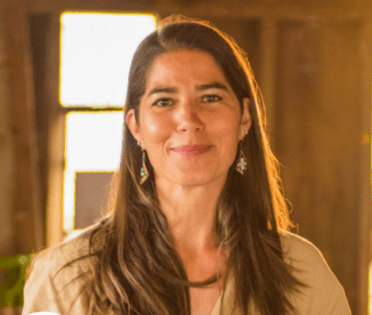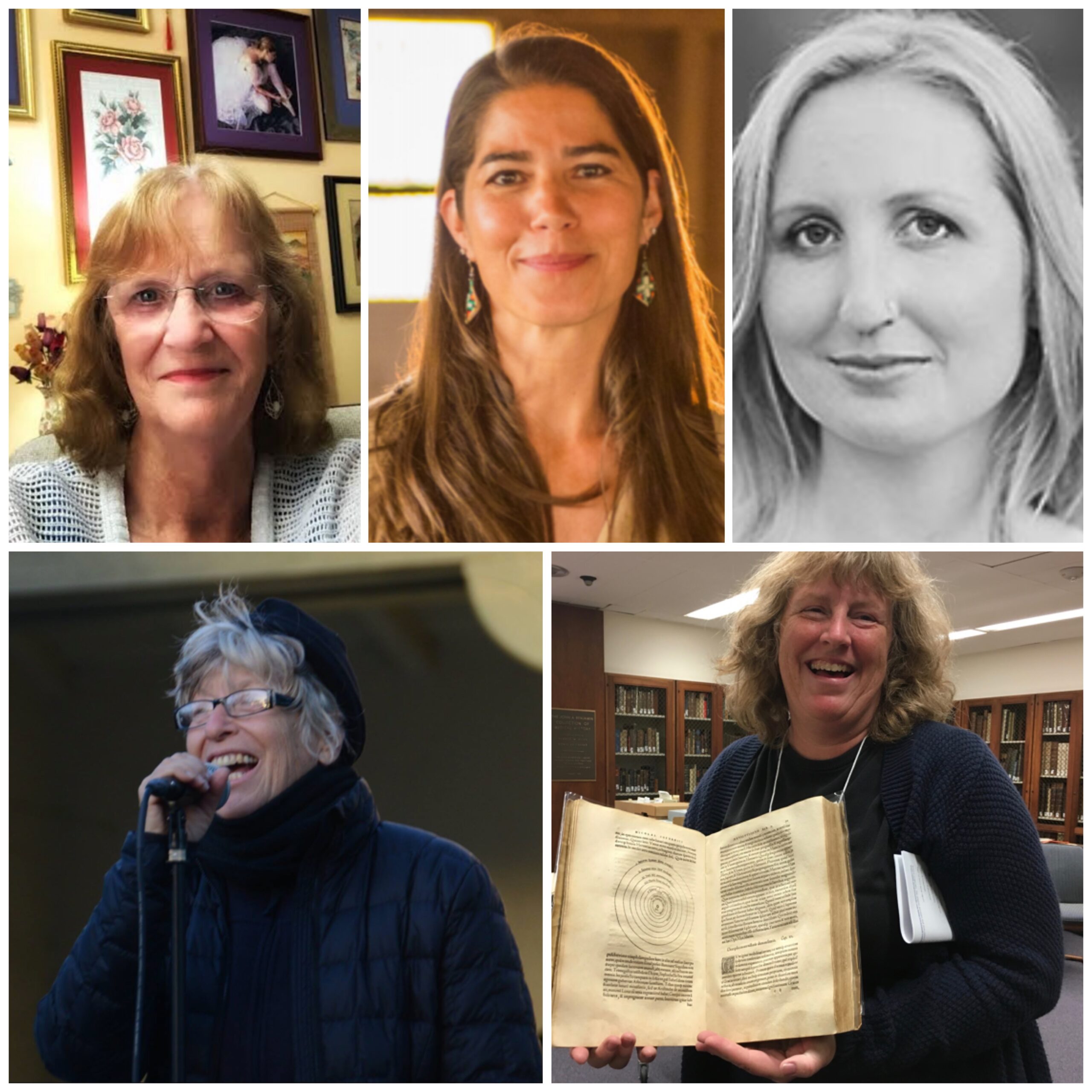California State University, Dominguez Hills is full of winners. This year, five professors took home awards from the Faculty Leaves and Honors Committee. Dr. Ryan Bowels Eagle, Dr. Vivian Price, Dr. Debra Best, Professor Anne Garrett and Dr. Jenney Hall have all deservedly received rewards this year for their hard work and dedication to their students.
Outstanding Professor, Really the Best

By Jordan Darling, Editor-in-Chief
My laptop let off a set of soft dings as students entered the virtual classroom. Dr. Debra Best, professor of English and coordinator of the graduate programs in English literature and rhetoric and composition sat facing her camera in her home office which is her new teaching space for the remainder of the spring semester.
Best, in her red shirt that read “Book Wyrm”, greeted each student with the same personable and cheerful energy that she extends to the subject she teaches.
Best was nominated and chosen for the 2020 Outstanding Presidential Professor Award.
In student reviews, Best is known as an enthusiastic and cheerful professor who brings her love of Medieval literature to each class and encourages students to find their own love and understanding of the subject.
COVID-19 has not stopped her from putting herself into her lectures and engaging with each and every one of her students.
Throughout the 476 lecture on Arthur and Robin Hood, Best trilled through a reading of Robin Hood in middle English, her voice taking on a rhythmic quality with sprinkles of vocal variations that matched the ballad style of the piece.
Her teaching style and enthusiasm have garnered two consecutive nominations for the award and after putting together a portfolio for the 2020 awards her efforts garnered her the win.
Her portfolio included documentation of her teaching practices, research, and services to the school alongside letters of recommendation which came from Best’s previous students.
Best developed a love for English and took on the major after reading Beowulf and the story continues to hold a special place in her heart.
Another part of her inspiration also came from a Shakespeare professor at her undergrad, California State Polytechnic University, Pomona.
“Part of [my inspiration was an] absolutely wonderful professor Martha Andresen, [who] imparted a love of Shakespeare,” Best said, “[Her] face would light up because she loved it so much and [it] made me want to follow in her footsteps.”
Best went on from Pomona and received her Masters and Ph.D. at the University of North Carolina, where she specialized in Medieval and Early Modern Literature.
She began her teaching career at Northwestern University, but found that the pressure of constantly publishing research took away from her ability to work directly with students.
“First I was teaching at Northwestern but I did not want to teach at a major research university, they were under so much pressure to publish you didn’t get to enjoy working with the students,” Best said, “And for me, that’s what it’s about. At Dominguez Hills, everyone here knows that we are here to serve our students and is committed to doing that.”
Best’s passion for Medieval English is something that she tries to impart to students.
She considers it a personal challenge to get students to love the works of authors like Chaucer and find an understanding and joy in the texts that they use.
“[My] favorite [to teach] is Chaucer, a wide variety of students come in thinking they will hate it [and] I like the challenge and watching the light bulbs go off as they realize they can do it.” Best said.
Teaching is a passion for Best, it is written on her face when she engages with her students, and when the proverbial light bulb goes off for them. Each time a student figured something out or even attempted to answer a question Best would light up and follow the train of thought either guiding it in the correct direction or going more in-depth to create understanding for the class.
COVID-19 changed the style of teaching but it didn’t take away the passion for this English professor.
“Dominguez Hills as a campus is blessed with a lot of distinction and excellence, unfortunately, we do not have enough occasions to recognize all of the genius that exists in our university community, this award invites us to recognize a special individual for their achievement and as a campus, we want to express our pride and congratulatory sentiment on the occasion of this wonderful award,” President Thomas A. Parham said.
The awards ceremony has been postponed for the foreseeable future but nonetheless congratulations Dr. Best.
Distinguished Teacher Award Recipient: Dr. Ryan Bowles Eagle

By Taylor Helmes, Assistant News Editor
As an undergraduate, Dr. Ryan Bowles Eagle was a quiet student who usually answered her professor’s questions in her head, rarely talking or participating. But that shy, introverted student grew up to be a teacher – one who’d be awarded for her excellence in teaching and education.
Among several faculty and staff to win awards this year at California State University, Dominguez Hills, Dr. Bowles Eagle was named the 2020 Lyle E. Gibson Dominguez Hills recipient.
If you’ve had the chance to take a communications class with Eagle, then you know that she is passionate about teaching students about how important representation and the roles audiences play in media industries. Not only is Eagle program coordinator for the Film, TV, and Media B.A. program, but she is a mentor to countless students and alumni.
Eagle has established the “6 E’s” in her classroom, both in-person and online: empathy, equity, enthusiasm, expectations, expertise, and exchange. By encompassing her teaching philosophy around these words, she has created an excellent standard of teaching. Rather than stand in front of a class and lecture, she makes students feel seen and heard by having a conversation and asking them questions.
When reflecting on her time as a double major in Cinema and Creative Writing at USC, she said she was exposed to what it was like to learn in a smaller, more intimate classroom setting.
“Being in a classroom where you workshop,” Eagle said. “It really showed me what it’s like to have students be vulnerable in a classroom.”
Like many college students today, Eagle wasn’t exactly sure what route to take with her career after college,
Eagle credits her Feminist Studies mentors at UCSB and her graduate education for showing her how to create a class full of voices from all backgrounds, genders, races, sexualities, and expertise to teach students all perspectives and realities.
“This career allows me to connect with people, to learn about people, to learn about myself,” Eagle said.
Recreating an intimate and vulnerable environment doesn’t look the same for all instructors or subjects. Eagle seems to have cracked the code on how to connect with her students and is described by colleagues as a leader in the Film, TV, and Media Program.
Virginia Todd Eames, assistant professor in the College of Arts and Humanities, recommended Eagle for the award, saying, “her ability to establish and maintain both student and program learning outcomes is a model in [the] department.”
Eagle listens to students’ needs and evolves her class around them.
In response to the campus closure due to the coronavirus in March, she has demonstrated such by opening multiple avenues of communication and ensuring her students understand concepts and key terms.
“I view my teaching as a collaboration,” Eagle said. “My teaching is so important to me, so the people who can really tell me how it can get better are my students.”
Dr. Vivian Price; Award-winning Professor Unites the World of Activism and Academia

By Brenda Verano, Staff Reporter
It took a while for Vivian Price to get around to teaching. Though it was a relatively straight timeline from her high school graduation to her master’s in history, Price then spent the next 15 years as the bluest of blue-collar workers, from jobs in refineries and construction to a union electrician.
So, when she decided to return to school in 1992 to pursue a doctorate in political science, she came with first-hand knowledge about how important labor and community organizing is to protect workers’ rights.
But she couldn’t help thinking of what an instructor cautioned her about while she was getting her master’s.
“It’s going to be really hard for you to be an activist, and an academic,” Price recalls the instructor saying.
Price never forgot that. And she has spent nearly every day the past 20 years proving that instructor wrong.
“I tried to find a way to incorporate my activism, my intellectual ideas, and my creativity,” Price the recipient of the 2020 Excellent in Research, Scholarship, and Creativity Award said. “If I can pass something along to people it’s that it may be challenging but you can be both.”
Price, who has been a CSUDH professor in the interdisciplinary studies program for 15 years, has received numerous awards, including a Fulbright Scholarship award in 2017, and the Peter Rollins Film award for best documentary of 2012 for her film “Harvest of Loneliness”
But she says this award is different.
“I was recognized by my own colleagues for my achievements, your colleagues know you, there are people who you have spent a lot of time with, it’s not just a glitch or luck, it’s a more deeply felt award,” Price said. “When I found out I felt very proud to be part of the CSUDH community.”
Along with her research and scholarship Price has played a significant role in CSUDH’s Labor, Social Justice an environment fair, as well as being an active member of the California Faculty Association. Workers’ justice is a throughline in her research and publications, including women in non-traditional work fields, migrant workers, climate change, and work equity both in the U.S. and globally.
“I was an electrician myself, I worked in those areas,” she said. “I came out of that world so it’s an incredible achievement to have the opportunity to publish about the experiences that I witnessed and that I was able to research further.”
Future areas of research she would like to focus on, is ways society can use multimedia for activism, as we have seen it unfold in this time of social distancing. She is also interested in finding ways to combat climate change for a more equitable society.
But whatever she pursues in and out of the classroom, she recognizes that all of it is informed as much by the students in her classroom as her personal and professional expertise.
“They teach me, I’ve learned so much from CSUDH students, they’ve taught me about their own life, they challenge my own assumptions of what it means to come from a low-income community and have to find one’s way,” Price said.
Realizing Connections Underscores Service of Jenney Hall

By Yeymy Garcia, Managing Editor
You may have heard of her as one the founders of CSUDH’s urban farm, but that’s not all that earned Jenney Hall the 2020 Excellence in Service Award.
Hall is a lecturer in the Interdisciplinary and Environmental Studies (IDS) and is the only physical scientist in the College of Arts and Humanities. With a B.S. in geology and chemistry, M.S. in hydrogeology, and a Ph.D. in paleoceanography, she has dedicated herself to researching climate change and environmental injustice, according to her bio.
“I love the work that I do, and I can get very focused and caught up in all the things that need to be done,” Hall said. “So, when I heard that I was being honored with the Excellence in Service award, I felt a great sense of comfort and relief that my hard work was creating something of value to others.”
Her passion for the environment led her to team up with student Hawk McFadzen and Sustainability Manager, Ellie Perry, to create an urban farm at CSUDH in 2018 in order to address student food insecurity, urban agriculture, and sustainability.
The urban farm was created thanks to many donations and grants, but sometimes, it isn’t enough, Hall said. For instance, after the farm received solar panels, Hall realized a new roof was reqired to install them, but the farm only had half the money. So, Hall took it upon herself to raise the other half through private donations and the farm received a new roof and solar panels this semester.
Even though Hall’s award stems from her work at CSUDH, her work off campus was also recognized. Wanting to be more involved in her children’s education, she volunteers to teach environmental studies at their elementary school because she believes all ages should be educated about the issues of climate change, pollution and threats to the ecosystem.
Hall doesn’t think it’s a coincidence that four of the five faculty award winners this year work in IDS, which is a cross-disciplinary program within the College of Arts and Humanities that allows students to choose their own program of study culled from IDS classes and other university departments focused on one of four concentration areas: American studies, comparative cultures, environmental studies or global studies. Being part of the program necessitates working across traditional academic lines, which spurs collaboration and instructors synthesizing ideas from across disciplines, which fuels creativity and dedication to each students’ individual progress, Hall said.
“I have learned so much from my colleagues in IDS and have grown tremendously from my interactions within the department, both academically and personally,” Hall said. “My department and my college have been incredibly supportive in encouraging me to build the Environmental Studies program here at CSUDH.
Even one of her students, Alicia Salmeron, an environmental studies graduate student, wrote a recommendation for Hall, which reminds her why she loves what she does.
“I am deeply committed to doing everything I can to give students the tools they need to make educated decisions about the issues affecting them, their families and communities,” Hall said. “Everyone needs to participate in creating a more just and sustainable future.”
Straight Outta Chaucer: Professor Anne Garrett Outstanding Lecturer

By Destiny Torres, Arts and Entertainment Editor
Professor Anne Garrett has taught at California State University, Dominguez Hills for 20 years. This year, she has been awarded the “2020 Outstanding Faculty-Lecturer Award” by the Faculty Leaves and Honors Committee for her hard work and dedication to the students.
Garrett was nominated by four people, before finally going ahead with her submission for the award.
“I didn’t think I would win because no one who teaches writing has ever been chosen before,” Garrett said. “It was a nice acknowledgment of the work I’ve done.”
Garret teaches interdisciplinary studies (IDS) courses that make up the year-long writing adjunct that certify the Graduate Writing Assessment Requirement (GWAR). This is where she discusses different writing techniques with students such as APA style, grammar, punctuation, and structure.
She works individually with students on revisions and edits of writing projects for their other courses. This way, she is able to address each student’s specific needs and teach them in a way that was exclusive to their writing style.
“It felt great to know those students were able to open up to me,” Garrett said. “We were able to bond, and I ended up learning a great deal from them,”
Along with teaching, Garrett has been the director of the GWAR. In this position, she reaches out to students who didn’t pass the exam to let them know what areas of their writing needed work. She said she has worked with thousands of students over the years, helping guide them to ways to pass the exam or take a course that will improve their skills.
Garret has always loved to read and write. As a child, she said she would get in trouble for reading and not playing outside with the other kids.
“What I would do is I’d put my book on the garbage can outside of my bedroom window,” Garrett said. “Then, I’d tell my mom I’m going outside to play, pick up my book, and find a place to read outside until it was time to go back home.”
Her love for reading and writing followed her into college.
Garrett attended the University of California, Santa Barbara as an undergraduate originally majoring in psychology. When she decided to study abroad in Scotland for a year, Garrett changed her major to English. Having enjoyed the experience, she decided to continue with that major. When deciding to further her education, she pursued her master’s degree at CSUDH.
After graduating, teaching was not in her plans.
Her mentor insisted she go that direction and recommended her for a job at CSUDH. When she got it, she said she learned a lot from the experience and from her students.
“I never envisioned myself as a teacher because I was so shy,” Garrett said. “But I just went for it and got the job.”
Garrett is most proud of teaching at CSUDH for the diversity in the community and the openness to various cultures and backgrounds. She said especially working in an environment where she was critiquing the work of her students, it was important that she provides them with the respect and comfortability to be able to connect with them.
“If I had to choose between teaching at Harvard or CSUDH, I’d choose Dominguez Hills,” Garrett said.

